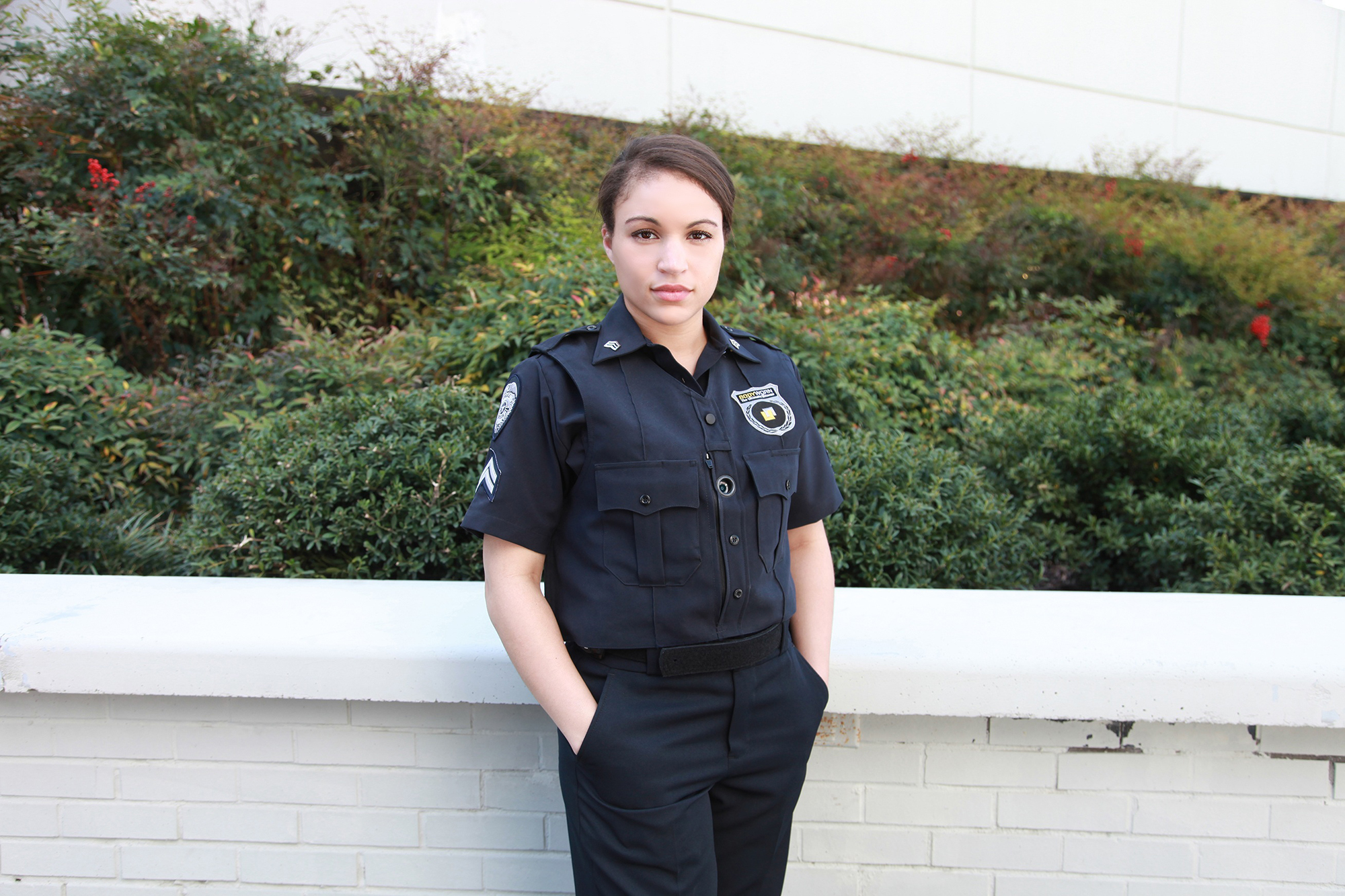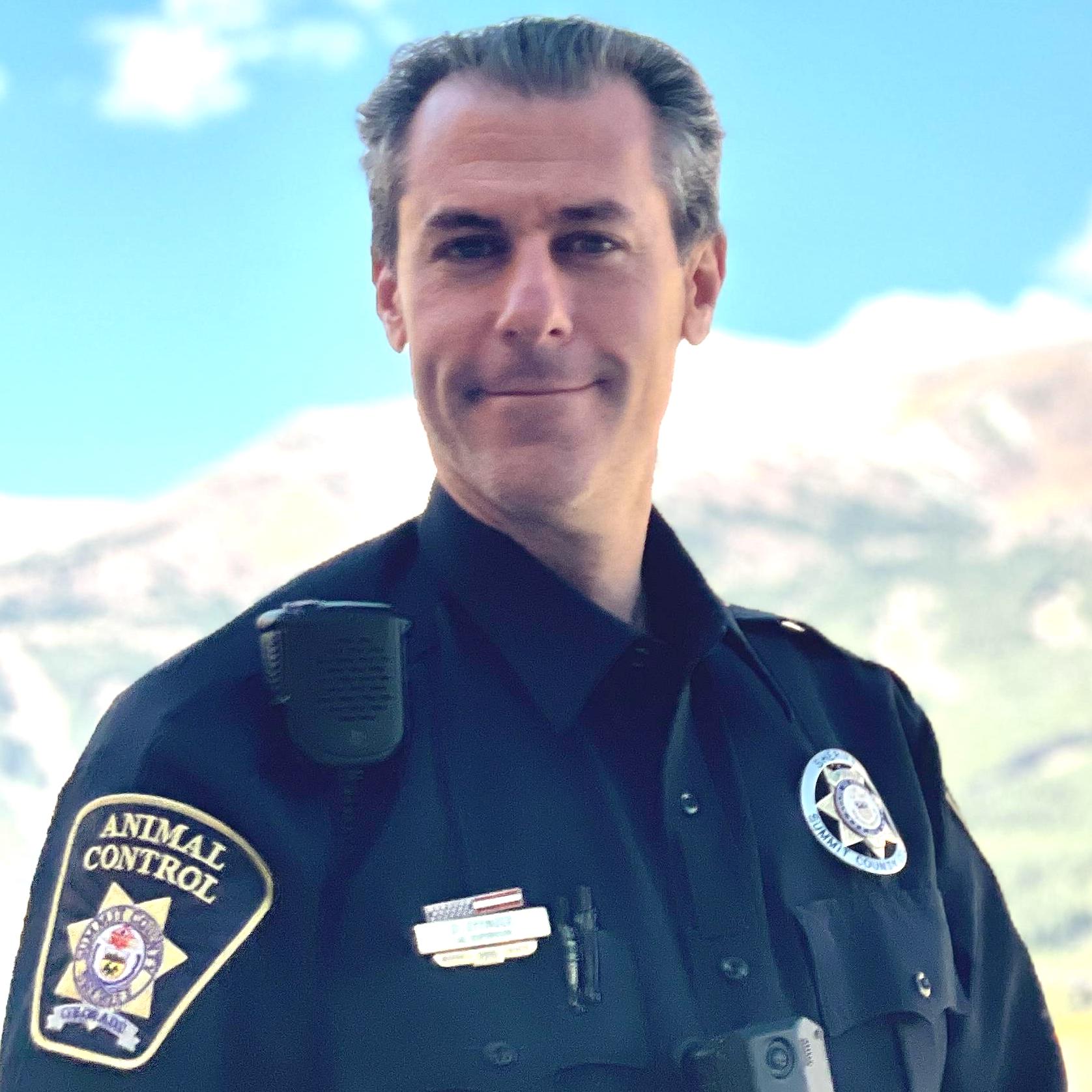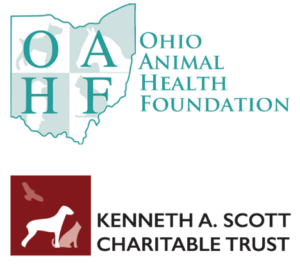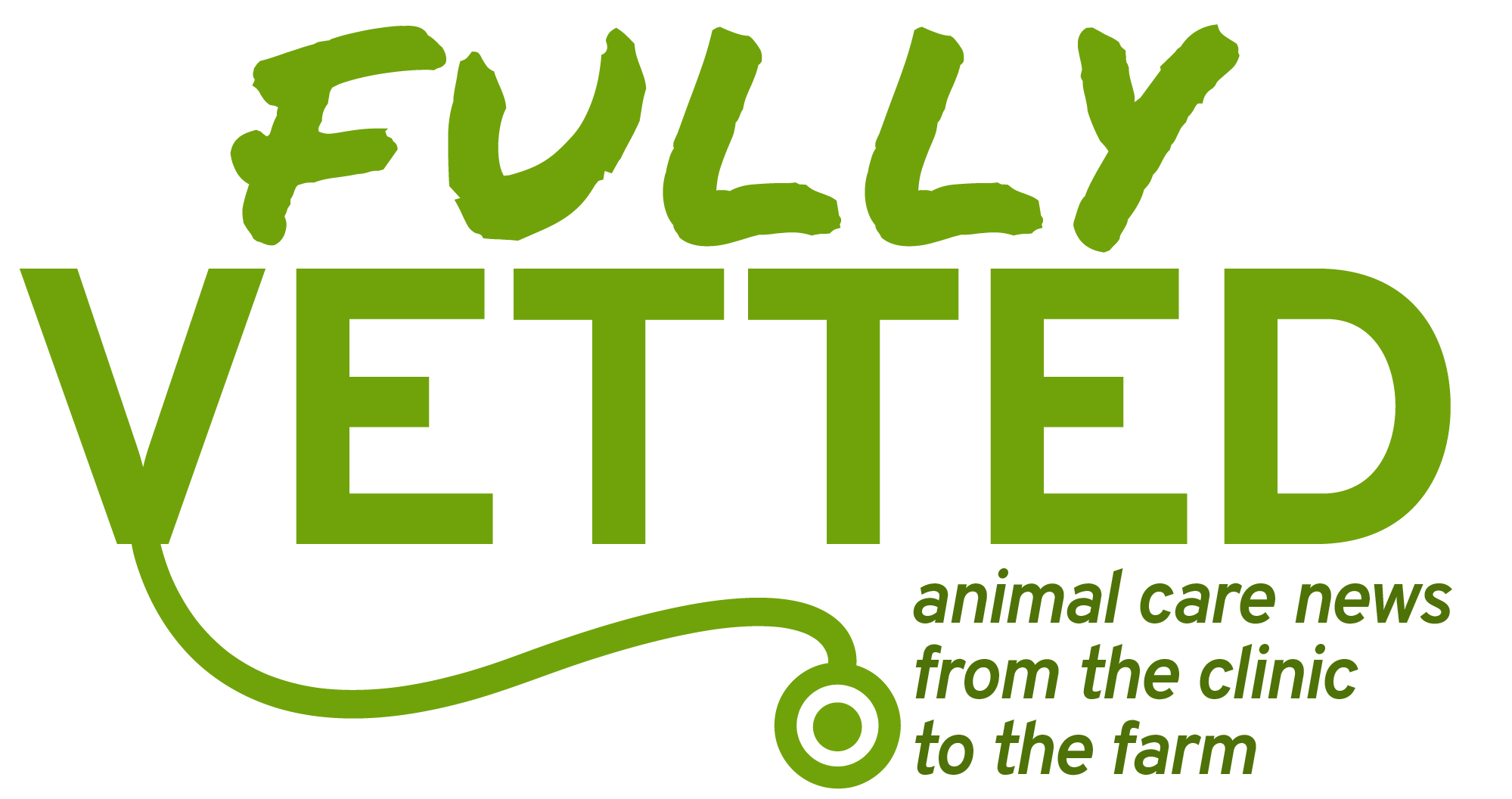
Episode 67
Behind the Badge: Keepin’ It Humane
With Daniel Ettinger
MIDWEST VETERINARY CONFERENCE PREVIEW SERIES See All Episodes »
Everyone knows the stereotype: “Dogcatchers” are portrayed in movies as evil villains that snatch up lost animals, drag them to the pound, and lock them away in a cold cage, never to be seen again. Sound familiar? Though not used as much nowadays, the old-fashioned term has had a lasting negative impact on the animal control profession and the public’s perception of it.
In this episode, part of the 2023 Midwest Veterinary Conference Preview Series, Animal Control Supervisor Daniel Ettinger joins us to talk about the importance of changing these stereotypes and why veterinary professionals should have a solid understanding of what humane agents do. He also shares highlights from his MVC sessions in the Humane Agent Training sub-track of the MVC’s shelter animal program.
Episode Guest

Daniel Ettinger
An animal control supervisor in Denver, Daniel has over a decade of experience investigating crimes against animals and is an an adjunct instructor for the University of Missouri’s Law Enforcement Training Institute. | Learn More »
Registration for the 2023 Midwest Veterinary Conference is open! Featuring 300+ hours of live and on-demand CE in 25 tracks, 75 expert speakers, and more than 100 exhibitors, this is another event you won’t want to miss!
Image by BodyWorn by Utility from Pixabay
Transcript
Mia Cunningham: Daniel, thank you for joining us.
Daniel Ettinger: Thanks for having me.
Krysten Bennett: How are you doing today?
DE: Really good, how are you?
KB: It’s Friday!
DE: It’s my first Saturday. Not to rub it in, but I get two Saturdays and one Sunday—or three Sundays, or three Saturdays. However you want to look at it.
MC: Oh, lucky you.
DE: The reason I do that is not to show off. It’s more of a self thing. To enjoy the fact that I get Friday, Saturday, and Sunday off.
MC: That’s lovely. One day I may know that, but today ain’t the day.
KB: So, Dan, we are extra excited to have you on the show. And let me just put out there that we love all of our guests, but we especially love fellow podcasters. You are one of the hosts of the Animal Control Report, formerly known as Humane Roundup.
MC: So this is old hat for you.
DE: It’s nice to be a guest. I’m excited. This is great that you do this. So this is available to anyone, but more so it gets sent out to the people that are coming to the conference?
KB: Yeah, it’s available to anybody in all the podcast places. Apple, Spotify, Google, probably some that we are not aware of even.
DE: We’ll share it on our podcast page too.
KB: Awesome. Thank you.
DE: Heck yeah.
KB: Since we’re on the subject, can you tell us a little bit about your show before we get into the nitty gritty of our interview?
DE: We’ve been at it for three years, and this is the first year that we’re really starting to promote. It like we built a brand around it. And I don’t know, it’s a really important podcast because not a lot of Animal Control officers or even animal shelter workers get an opportunity to go to training. And so we really try to bring 30 to 60 minutes of training quality type of guests onto the show and then have just those conversations that you would if you were in the training yourself.
KB: And speaking of which, that reminds me, I listened to one of your podcasts the other day, and I think I remember you mentioning something about freestyle rapping on the show.
DE: That’s awesome. Yeah, sometimes I’ll sing country music, sometimes I’ll rap. It just depends on the mood. We have a couple show opens, me and my child. We were just sitting around one day like, you want to make a show opening? She’s like, yeah. And I was like, let’s write a rap. And so we wrote a rap. We’re not really on beat, but it doesn’t matter, it’s fun.
MC: How old is she?
DE: She’s ten, and I have a twelve year old too.
KB: If the wind blows you in that direction, if you feel like rapping, that’s totally fine.
DE: You got to tune into the Humane Roundup podcast to get rap! That’s how that works.
KB: Fair enough. Well, thank you again for joining us. Now that we’ve heard a little bit about you can you give us the official introduction?
DE: Well, my name is Daniel Ettinger, and for some of your listeners that are veterinarians, it’s not to be confused with Dr. Steven Ettinger, who wrote the internal medicine book on veterinary medicine, I guess is what you I don’t even know, but I know I get confused with that guy a lot.
KB: There’s also a Sue Ettinger. She spoke at MVC last year.
DE: Holler! What’s up, Sue, if you’re listening.
KB: But you probably wouldn’t get confused with her too often.
DE: No, we’re not family, even though we have the same last name, which is a unique last name. So for me, I really found animal welfare—I guess I’ll say that. Sometimes people say it found them. Maybe it’s a combination. But I found it in the aspect of, I was working a job that, for me, it wasn’t just— It just wasn’t by design. Right. Sitting in a cubicle is not what I’m built for. And I had this urge to go find a puppy. I was like, I need a new dog, even though I had a dog. You know how that works. You’re like, I want another one. And so I go the shelter. It was the Denver Municipal Animal Shelter at the time, and it was five minutes away from where I worked. And so I started going there looking for a dog, and I got pulled in to be a volunteer, and I was like, this is pretty cool. And so I never found a dog. But, believe it or not, I found a career.
It was an opportunity to go in, volunteer, understand what it’s all about. My job prior to that was putting commercials on television. By a show of hands—I mean, it’s a podcast, but how many people actually watch television for the commercials? Not many.
KB: Maybe during the Super Bowl.
DE: That’s about it. Yeah. So from there, I just found that this career, this profession, there was such a purpose behind it, and I fell in love. I really did. And so I’ve been doing it, as a volunteer to now, for 13 years I’ve been in this industry, and I hope to stay another probably— since I don’t have Social Security—another 35 years maybe. So that’s kind of how I got into it.
MC: Well, thank you for sharing that with us. And so, for our listeners, Daniel will be joining us as a speaker for the 2023 Midwest Veterinary Conference. Could you give us just kind of like an overview of your sessions and what people can anticipate learning by attending?
DE: Well, I’m really excited to share that with you and the listeners. For me, when people see animal control or hear it, they may have a misconception on what it is. Right? And so I think one of the sessions we have going is Humane-izing the Badge. It’s a play on words of humanizing the badge. And the idea and concept behind that is, really, I want people that aren’t necessarily familiar with animal control to come to these sessions. I think you’ll really enjoy seeing what really goes on behind the badge as animal control officers or whatever the name is—we’ll get into that in that session as well—and it just gives a broader perspective. We all have to work together in order to really provide the best outcomes for animals. And so knowing your local animal control officer, if you practice privately or if you’re a shelter vet, is really important. So Humanizing the Badge is one of those.
We’re going to talk about the concepts between family violence and animal abuse, which is extremely important for veterinarians to understand and know. Obviously for our animal control officers, they do get that training, but I think sometimes it gets overlooked. And so what can be put in place for veterinarians or anybody in that staff? So when they can say, “Something doesn’t seem right,” we’re going to call animal control to do a follow up, welfare check, that type of stuff. So I highly recommend checking that out. It’s a hard class. It’s tough, especially if you’ve ever been around a situation like that. It can be triggering and difficult to go through. But it’s extremely important to learn some of the things to look for so you can help somebody else out. I mean, that’s our main goal, is to help people and to help animals.
And then we’re going to do a fun breed identification game, which anyone can do if you study your breeds, and then you can win a prize. So it’ll be fun. I believe in interactive learning. My goal is to always try to get the group involved because I feel like if you have fun and can be a voice and just have a say in in your training, you take more of it home.
KB: Absolutely. So, Dan, you’re speaking on Thursday, February 16, in the Humane Agent Training sub-track of the Shelter Animal program. And I’m not going to lie, with something like 16 sessions running concurrently, there’s going to be some intense competition with other tracks. So what do you want to tell attendees about your sessions? Is there anything specific you’d like to highlight to convince them to come to your track?
DE: I just really want to reach people that wouldn’t normally go to this type of track because I think it’s going to be so eye opening for them. I want veterinarians in there to see like, okay, this is important for us. This could actually help us in this way.
KB: What is so important about this training, particularly for individuals who are not humane agents?
DE: Well, it’s not something I like to share, but it’s a fact in 2017, a study showed that 89% of women in homes with domestic violence, their animal has either been threatened, harmed, or killed by the abuser.
KB: Wow.
DE: Right. So that fact alone is appalling. I just think it’s important for people in that in the field to to say, like, whoa, how would I recognize that it’s abuse? What happens in a home? Because, you know, you may get presented with an animal whose injuries looks like it might match the story. Maybe the dog did fall down the stairs. But forensic veterinary medicine shows a dog with broken ribs is from blunt force trauma, not being hit by a car, et cetera. So I think when we look at things like that, it’s really important for anyone coming to the conference to understand and know that this class specifically will teach you that.
KB: That’s a really good point. Obviously, we all got into this profession because we want to help animals. But by learning how to recognize when an animal is being abused, you can not only help that animal, but you potentially also can help its humans as well. And that’s a really important, powerful thing to remember.
DE: I agree. I do this to help both people and animals. And I know it’s a little different in the private practice, but at the end of the day, that’s still the goal. You’re helping somebody by helping their animal. You deal a lot more with the person than you are going to the animals.
KB: Does Colorado have mandatory reporting for veterinarians?
DE: We do. It is required. So there’s that, and there’s also no client patient privileges in a situation where animal cruelty or animal neglect is assumed. The problem that we find is, depending on where you are, certain vets may have more of an issue, because they don’t want that reputation or name of turning in people. It has come up. We’ve never truly had to investigate a veterinarian for anything of that nature. It just sometimes can be challenging when asking for records. And then you have to cite the state statute and let them know, like, hey, this is required, so please let us have this.
MC: Well, if any attendees are interested in reaching out to you before or after the conference, where can I find you online?
DE: Well, you can go to my website. It’s humanemain.com. You can also find us on Instagram or Facebook as Keep it Humane Main. So the whole purpose behind that name is our main goal is to keep it humane. And so that’s how the name kind of formed. And we always say it on our podcast.
KB: We’ll link to all of those in our show notes.
MC: Did you have any final thoughts for us before we let you go?
DE: I just really appreciate it. I’m glad to see that there’s podcasts out there, there’s ways to inform people, about things that maybe they’re not as familiar with. So I greatly appreciate that. I’m sure your listeners do as well. And I just wanted to thank you for giving me an opportunity to say, as I always do at the end of our podcast, keep it humane main!
KB: Oh, my gosh, guys, this is like a crossover event!
DE: Actually, if you want to come on and do a quick episode with us, we’d be happy to have you to just promote the upcoming training.
KB: Yeah, sounds good.
DE: Awesome. Thank you so much. I look forward to meeting you all in person; that’ll be fun.
KB: Absolutely. Yeah, we’ll be there!
MC: Have a good rest of the day.
Daniel will be speaking on Thursday, February 16, in the Shelter Animal I, Humane Agent Training track (Sessions 166 through 171). For more information, please visit mvcinfo.org/attendees.
Special thanks to the Kenneth A. Scott Charitable Trust and the Ohio Animal Health Foundation for supporting this track.

